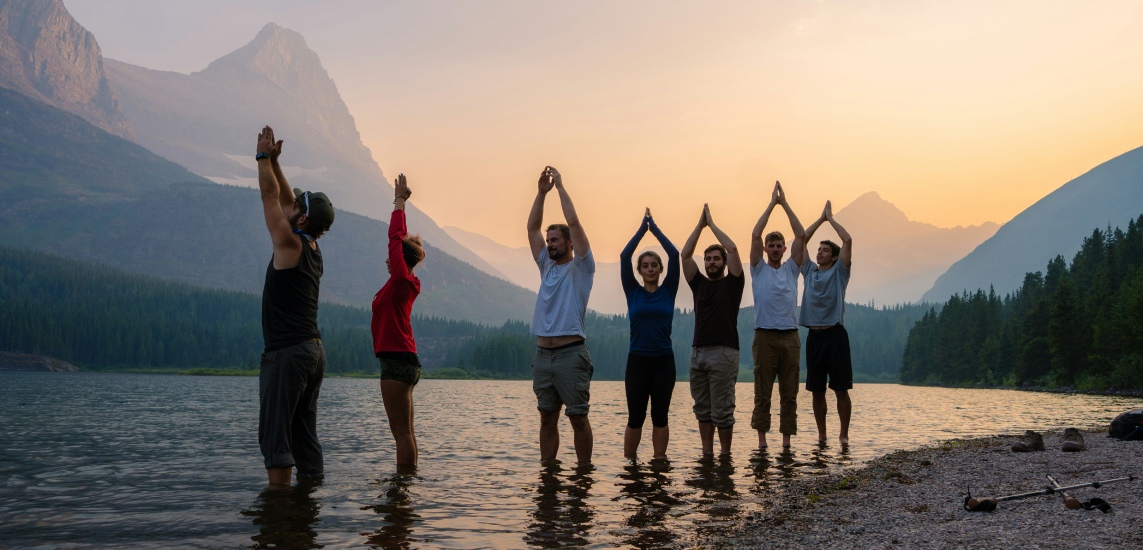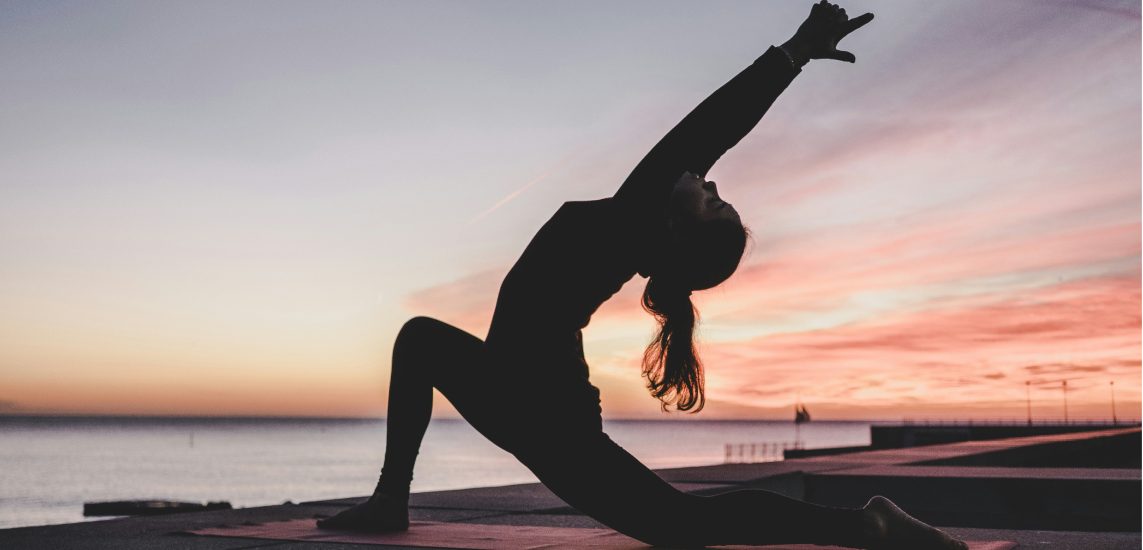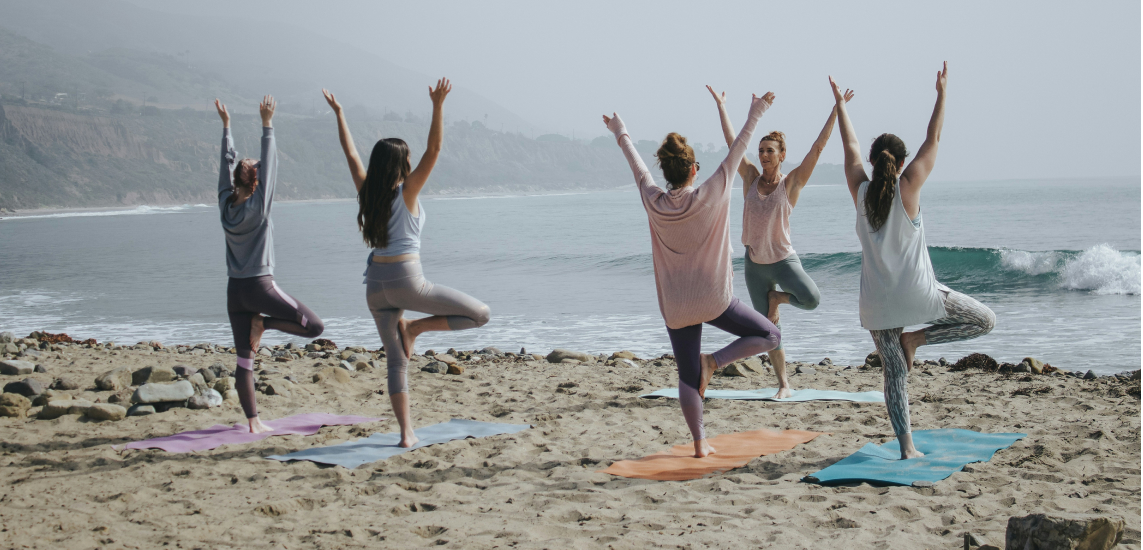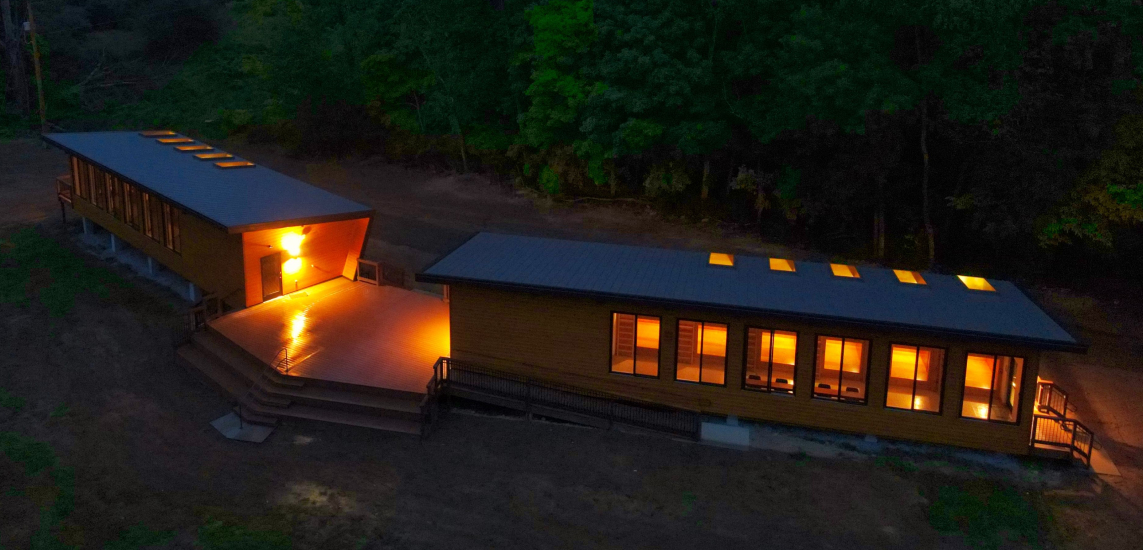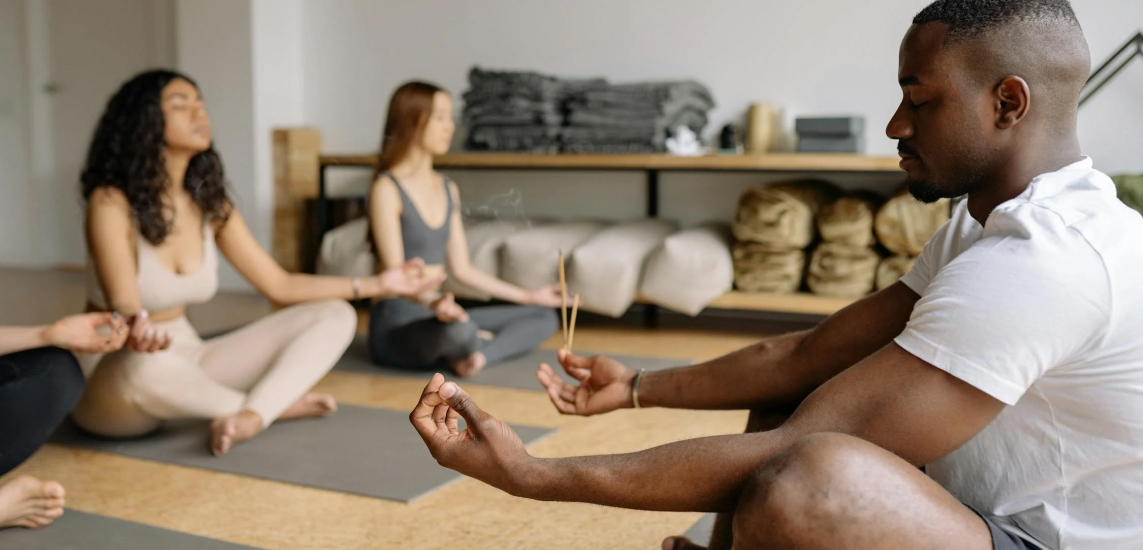This article was created using insights from Insight Timer’s yoga and meditation experts.
Retreats offer an excellent way to step back from the noise of daily life and focus on our mental, physical, and spiritual well-being. But committing to a retreat may feel overwhelming. With a plethora of options on the market, understanding what each entails and choosing the right one for your goals is no small task.
Whether you’re looking to deepen your meditation practice, explore spiritual growth, or embark on an adventure, a retreat can offer a transformative experience that amplifies personal growth. In this guide, we’ll explore some of the most popular retreat types, provide tips for choosing the right one, and share practical advice on how to prepare for your wellness journey.
Ready to enter a deep state of flow and trust? Join Into Nature: Yoga and Nature Immersion Retreat in San Rafael, Colombia, from January 31–February 7, 2026. Guided by Cecilia Ballan, this week-long journey blends yoga, somatic techniques, and nervous system regulation with deep immersion in nature, leaving you grounded, adventurous, and aligned in body, mind, and soul.
Key takeaways:
- Retreats offer transformative experiences that focus on personal growth, relaxation, and healing.
- From yoga and meditation to detox and plant medicine retreats, there’s a retreat type for everyone—each offering unique benefits for mind, body, and soul.
- Setting clear intentions, researching the retreat, and packing essentials ensures you can fully immerse yourself in the experience and embrace the journey.
- Insight Timer offers world-class retreats from globally recognized meditation, yoga, and wellness teachers, making it easier than ever to find the right retreat for your goals.
What is a retreat, and why is it beneficial?
A retreat is an intentional getaway designed to promote relaxation, personal growth, and healing. Typically held in serene and peaceful locations, retreats provide a structured environment where participants can engage in activities like yoga, meditation, creative workshops, or wellness practices tailored to their specific needs.
Peter Harper, an Insight Timer meditation teacher and retreat host, highlights the profound benefits of retreats, saying:
“The greatest benefit I have experienced from retreats is an elevated self-awareness. From there, an enhanced clarity can guide you to new experiences with a sense of connection and purpose.”
Attending a retreat offers numerous other benefits, too, including:
- Disconnecting from stress: Stepping away from work, social media, and daily obligations can help clear your mind and reduce stress levels.
- Fostering mindfulness practices: Retreats often teach techniques like meditation and breathing exercises that help attendees ground themselves, allowing them to experience the present moment more fully.
- Building a supportive community: Many retreats bring together like-minded individuals, creating a space for meaningful connections and shared experiences.
- Improving overall well-being: Research confirms the positive effects of retreats on well-being in the long-term. Whether it’s through mindfulness, emotional healing, or physical activities, retreats often leave participants feeling recharged and healthier long after the experience is over.
- Exploring a new perspective: Learning from world-class experts and peers can refresh your outlook and inspire creativity or personal breakthroughs.
9 different types of retreats
Retreats cater to a wide range of interests and goals. Below, we’ll delve into the most popular options, from meditation retreats to adventure-filled experiences.
Meditation retreats
Meditation retreats are designed to cultivate inner peace and mindfulness through guided or silent practices. Participants spend their time focusing on self-reflection, meditation techniques, and mindfulness workshops.
Peter Harper highlights the transformative nature of these retreats:
“Meditation retreats help you reconnect to your authentic self, allowing your energy to flow and your natural well-being to arise. Showing up with openness and curiosity makes the experience more satisfying and helps you develop a practice for daily life.”
While the focus of meditation retreats varies widely, here are a few popular offerings to consider:
- Vipassana retreats: Silent retreats emphasizing self-awareness and observation, often lasting seven to 10 days. Participants refrain from speaking, reading, or writing, which allows them to fully focus on their inner experience.
- Zen retreats: Blend seated meditation (zazen) with mindful walking (kinhin) to encourage focus and clarity. These retreats are ideal for those seeking structure and simplicity in their mindfulness practice.
- Mindfulness retreats: Guided sessions on staying present, often incorporating workshops and group discussions. They provide practical tools to apply mindfulness in everyday life.
- Compassion-based retreats: Teach practices like loving-kindness meditation to foster emotional balance and empathy. These retreats are great for anyone looking to deepen their emotional connections and reduce feelings of anger or resentment.
Yoga retreats
A yoga retreat combines physical movement, relaxation, and personal growth in a supportive environment. These retreats often include daily yoga sessions, yoga philosophy classes, and opportunities to reflect. Peter shares:
“A wonderful moment that often happens in yoga is when there is a spontaneous connection to your authentic nature. The mind clears, and a feeling of love and connection arises. It can be a profound turning point, giving you a glimpse of who you truly are without the clutter of thoughts and stories.”
There are many styles of yoga retreats to explore, including:
- Ashtanga retreat: Rigorous, physically demanding sequences for experienced practitioners seeking discipline and structure. These retreats often follow a set series of poses, making them ideal for those who appreciate routine and challenge.
- Vinyasa retreat: Focused on fluid, dynamic sequences that emphasize the connection between breath and movement. Perfect for those who enjoy creative, flowing classes that vary from day to day.
- Kundalini retreat: Spiritual yoga incorporating chanting, meditation, and breathwork to awaken inner energy. These retreats are ideal for individuals seeking a transformative spiritual journey alongside physical yoga practice.
- Hatha retreat: Gentle, beginner-friendly retreats that focus on foundational poses and breathing techniques. Great for those new to yoga or anyone wanting a slower-paced experience.
- Yin yoga retreat: Slow-paced retreats centered on deep stretches and relaxation, ideal for stress relief and flexibility. Participants hold poses for several minutes, encouraging deep physical and emotional release.
Detox retreats
If you’re feeling overwhelmed or in need of a reset, detox retreats provide an opportunity to cleanse both your body and mind. These retreats often feature practices like juice cleansing, fasting, or digital detoxing—encouraging participants to step away from their devices.
In addition to physical purification, detox retreats often incorporate holistic practices such as yoga, meditation, and sound healing. Many attendees leave feeling lighter, refreshed, and ready to tackle daily life with renewed energy.
Lisa Meta, another Insight Timer teacher and retreat host, advises participants to prepare for some initial discomfort during a detox retreat:
“If you’re ready to feel resistance and discomfort but are committed to move through it no matter what, a detox retreat could be right for you. Come into these retreats knowing it will be hard, and prepare yourself for how to deal with that level of resistance.”
Adventure retreats
Adventure retreats combine thrilling outdoor activities with exploration and mindfulness practices, creating a unique balance of movement and reflection. Imagine starting your day with a challenging hike through breathtaking scenery and ending it with a calming yoga session under the stars.
These retreats may include activities like:
- rock climbing
- hiking
- surfing
- paddleboarding
- canoeing
- bungee jumping
If you’re seeking to reconnect with nature and enjoy physical challenges, an adventure retreat may be a great fit. They help build resilience and foster a sense of awe while improving mental clarity.
Spiritual retreats
A spiritual retreat focuses on nurturing your connection to a higher purpose or exploring holistic spiritual practices. These retreats provide a safe space for introspection and personal growth through activities such as meditation, prayer, or rituals rooted in specific traditions. Ali Temple, one of Insight Timer’s teachers and retreat hosts, shares:
“Spiritual retreats are wonderful during times of transition, where you are looking for clarity on your life’s path or seeking deeper connection with yourself and the world around you.”
Different types of spiritual retreats offer unique experiences, including:
- Buddhist retreats: Centered around mindfulness and meditation, often including teachings on compassion and detachment. Participants may follow structured schedules of sitting and walking meditations, along with Dharma talks that explore Buddhist teachings.
- Interfaith or holistic retreats: Combine elements from various spiritual traditions, promoting inclusivity and personal exploration. Practices may include meditation, yoga, chanting, or Ayurvedic treatments. These retreats are perfect for participants seeking spiritual connection, with a more open-ended path to self-discovery.
- Yoga and spirituality retreats: Blend traditional yoga practices with teachings on spirituality. Participants may practice asanas, pranayama, and guided meditations while engaging in discussions about yogic philosophy or the chakras. These retreats are a great fit for individuals wanting to explore the intersection of mindfulness and movement.
A spiritual retreat can also help participants find inner guidance and cultivate deep meaning in their lives. Peter highlights their profound potential:
“The ultimate questions at many spiritual retreats are, ‘Who am I? Where do I come from? Why am I here?’ The answers will not come as concepts from the mind, but through a direct knowing of your own truth. When you find a technique or discipline that resonates, patient practice will reveal rewards beyond the mind and expectations.”
Silent retreats
For those ready to embrace stillness, silent retreats offer a unique opportunity for introspection and mental clarity. Participants typically refrain from verbal communication and spend their days practicing mindfulness meditation, journaling, or silent walking.
While silence can feel challenging at first, it can be incredibly rewarding. Silent retreats help sharpen awareness, improve focus, and deepen our connection with the present moment. Lisa explains:
“Stripping away talking allows someone to go inward and hear the many layers of the mind. Without external influences, your other senses become sharper, and you can experience more presence and peace.”
Peter describes silence as a “wonderful atmosphere to slow down and calibrate to the comforting rhythm of nature. It can take a day or two to adjust, but with patience, the fullness of your Being emerges, offering deep satisfaction.”
Welcome the New Year in silence with the New Years’ 4-Day Silent Meditation Retreat in Washington from December 29, 2025 to January 1, 2026. Guided by Hridaya teachings, this retreat offers meditation practices and sacred silence to quiet your mind, open your heart, and connect with your innermost self.
Fitness retreats
A fitness retreat is typically designed to help participants focus on improving their physical health and overall well-being in an immersive, supportive environment. They often combine exercise programs with relaxation and nutrition.
Common activities you may encounter on a fitness retreat include:
- high-intensity interval training
- strength training
- yoga
- pilates
- hiking
- swimming
Programs are often tailored to different fitness levels, making them accessible to beginners while still challenging for more advanced participants. Many fitness retreats also include workshops on topics like nutrition, recovery, and lifestyle habits to help attendees make lasting changes.
Wellness retreats
Wellness retreats offer a holistic approach to self-care. They’re typically designed to enhance overall mental, emotional, and physical health. As such, a wellness program will usually combine fitness with spa treatments and workshops on topics like nutrition and stress management.
A typical wellness retreat might include:
- morning yoga
- healthy, locally sourced meals
- relaxing massages
- spa treatments
- fitness classes
- meditation sessions
Whether you’re looking to relax, learn new wellness tips, or adopt healthier habits, a wellness retreat is perfect for fostering long-term balance and vitality—especially for first-time retreat attendees.
Plant medicine retreats
Plant medicine retreats use traditional substances like ayahuasca or psilocybin to facilitate emotional and spiritual healing. These retreats can be intense yet profoundly transformative when guided by experienced facilitators in a controlled and safe environment. But proper preparation is key: Understanding the substance, setting intentions, and integrating the experience afterward are crucial elements for navigating this journey safely.
Peter explains:
“Plant medicine is a powerful tool to give you a profound glimpse of your nature and the world. However, the effects are temporary, and it’s crucial to have a solid practice to absorb insights and ground yourself afterward.”
For those considering a plant medicine retreat, be sure to choose a facilitator with experience in aftercare. You’ll want to ensure they can help support your long-term growth and well-being after the retreat is over.
Choosing the right retreat for your needs
If you’re set on attending a retreat but aren’t quite sure which one fits your needs, start by identifying your goals. Are you seeking spiritual growth, physical challenges, or time to relax? Once you’re clear on your intentions, consider these factors:
- Retreat centers and locations: Think about your preferred surroundings—whether a beach, the mountains, or a forest. Make sure the retreat center has your desired amenities.
- Theme and offerings: Ensure the retreat’s theme aligns with your wellness goals.
- Facilitators: Research the experience and qualifications of retreat leaders. Read testimonies from previous attendees.
- Duration: Decide how much time you can dedicate to your wellness journey.
Peter emphasizes the importance of trusting your instincts when selecting a retreat:
“Make sure it feels right for you. Move with what is comfortable—whether that’s the location, food, or recommendations from trusted sources.”
Tips for preparing for a retreat
Being well-prepared can take your retreat experience to the next level. Taking time to prepare both practically and mentally ensures you’ll be ready to fully immerse yourself in everything the retreat has to offer. Here are some key tips to help you get ready:
- Set clear intentions: Reflect on what you hope to achieve. Journaling your goals ahead of time can provide clarity and keep you aligned throughout the retreat.
- Pack essentials: Bring comfortable clothing, personal items, and tools like a yoga mat or meditation cushion.
- Research the retreat center: Familiarize yourself with the schedule, activities, and rules.
- Disconnect from technology: Practice reducing screen time in your daily routine before the retreat. Many retreats encourage a digital detox to help participants fully engage in the experience.
Discover top retreats with Insight Timer
Insight Timer’s retreat marketplace offers access to exceptional retreats led by renowned teachers, providing transformative experiences for all skill levels. Whether you’re new to yoga and meditation or seeking advanced workshops, these retreats are thoughtfully designed to enhance your practice, promote mindfulness, and build a sense of community.
For ongoing support, explore Insight Timer’s vibrant network of over 25,000 groups. These communities allow you to connect with like-minded individuals and continue your journey both online and in person.
Different types of retreats FAQs
What should I bring to a wellness retreat?
Comfortable clothing, personal toiletries, and a journal are essential for most wellness retreats. If yoga or fitness sessions are included, you may want to bring workout clothes and a reusable water bottle. Some retreats may provide yoga mats and other tools for you. It’s a good idea to check the list of requirements in advance.
Are retreats suitable for beginners?
Absolutely! Many retreats are designed to be beginner-friendly, with activities and workshops tailored to different experience levels. Facilitators and instructors are typically skilled at guiding newcomers and ensuring they feel welcome. If you’re new to yoga, meditation, or wellness practices, be sure to look for retreats that specifically welcome newcomers.
What usually happens at retreats?
Retreats often include structured activities such as yoga sessions, meditation workshops, group discussions, and personal reflection time. Depending on the theme, you might also enjoy activities like nature walks, wellness workshops, or creative classes. Most retreats balance group activities with free time, allowing you to rest, explore, and process your experience.
How do I know if a silent retreat is right for me?
A silent retreat might be right for you if you’re seeking mental clarity, emotional balance, or deeper self-awareness—or if you already have a meditation practice. Silent retreats can be particularly challenging for meditation novices as they require prolonged periods of quiet. Consider starting with a shorter option to ease into the experience.
Can I go on a retreat alone?
Yes! In fact, going solo is quite common and often enhances the retreat experience. Attending one alone allows you to focus entirely on your goals and personal growth without external distractions. Most retreats foster a sense of community, so you’ll still have opportunities to connect with others if you choose.
References
Epel, E. S., Puterman, E., Lin, J., Blackburn, E. H., Lum, P. Y., Beckmann, N. D., Zhu, J., Lee, E., Gilbert, A., Rissman, R. A., Tanzi, R. E., & Schadt, E. E. (2016b). Meditation and vacation effects have an impact on disease-associated molecular phenotypes. Translational Psychiatry, 6(8), e880. https://doi.org/10.1038/tp.2016.164


